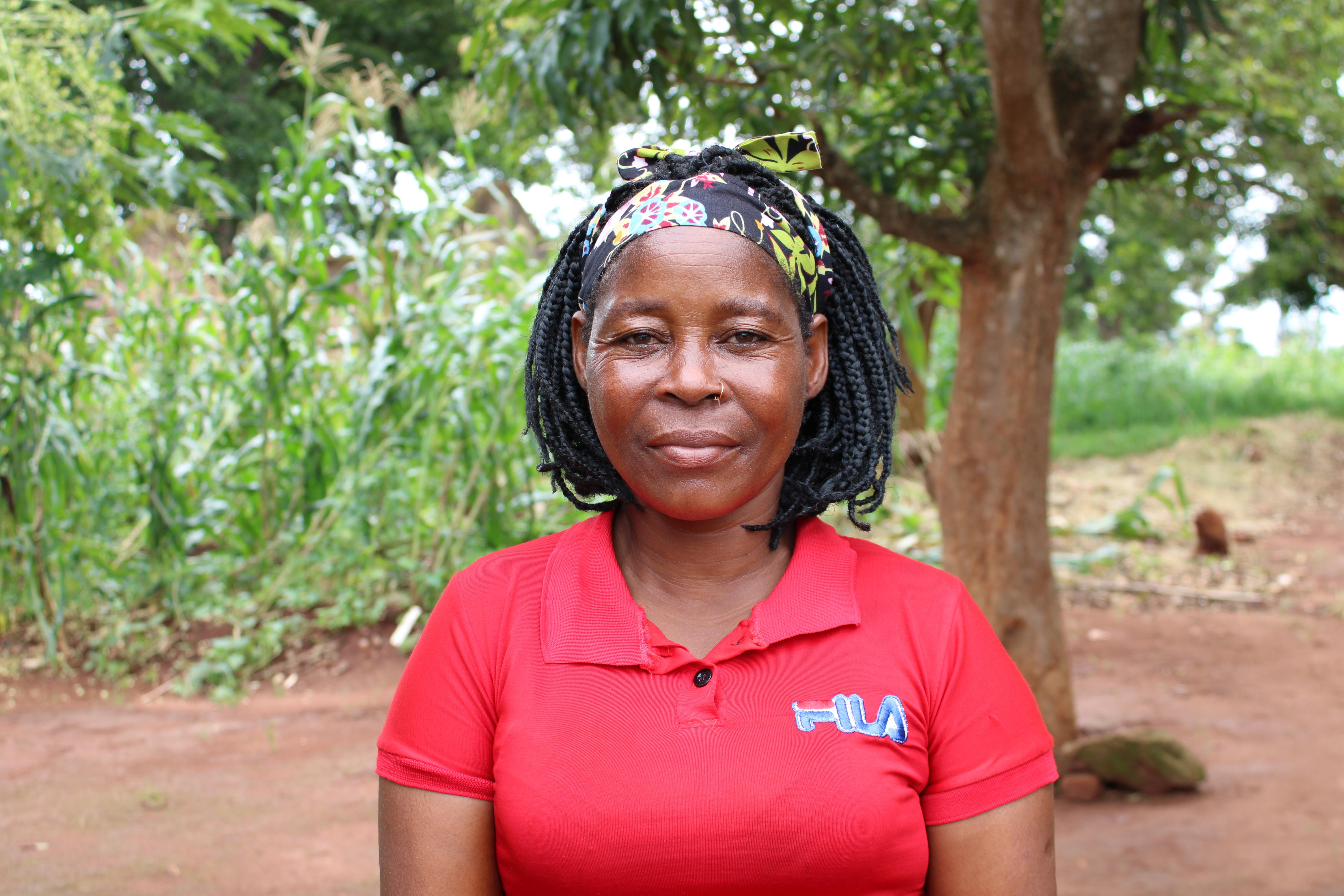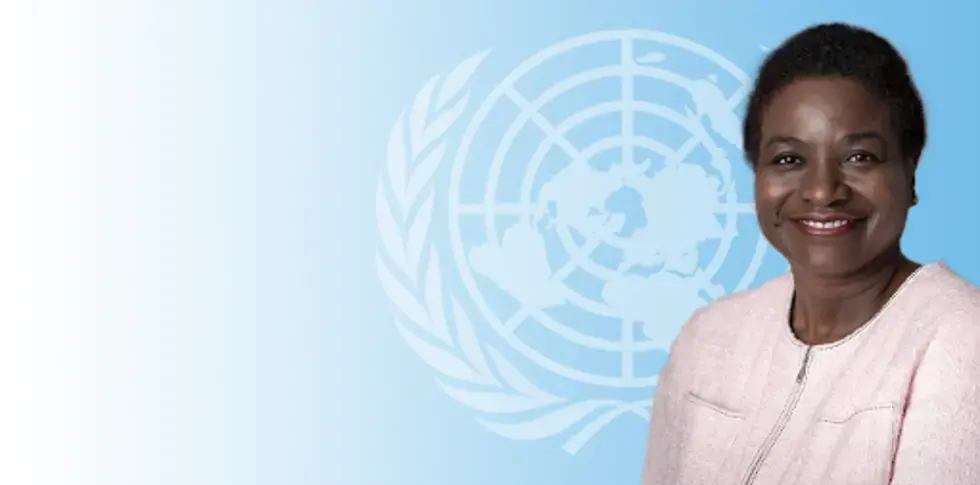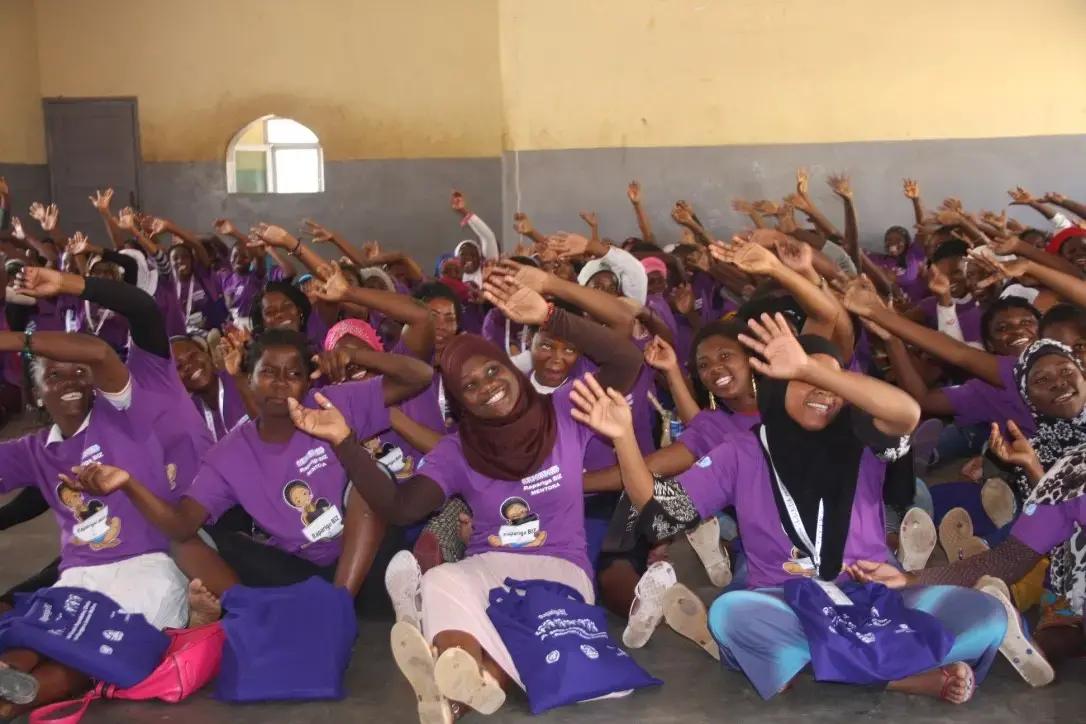When a woman goes into labor during the night, we don’t have a choice, as traditional birth attendants, we have to be there to assist her. I even call the nurse at the health center to let her know we are on our way. It doesn’t matter what time or day, even during a holiday, we have to be there to help!
shares Catarina Pedro Mesa, a traditional birth attendant (TBA).
At 45 years of age, Catarina has supported women and girls of reproductive age in her community for the past four years. With nine children of her own, she has helped bring one hundred newborns into the world in the remote Ile district in Zambezia province in Mozambique.
Some of the villages that Catarina supports are over 25 km away from the nearest health facility, with some roads not accessible by car. As a result, the most commonly used mode of transport is a bicycle, meaning that women in labor are often transported alongside their trusted traditional birth attendants and their community bicycle-taxi driver if they can afford the ride. With limited access and financial means, other women are forced to walk the full distance to the health facility - enduring hours and putting their lives and their baby at risk.
Catarina’s experience with the women and girls she supports is very common in Mozambique, one of the countries with the highest maternal mortality rates in the world with 452 deaths per 100,000 live births. Access to health facilities is also one of the most challenging bottlenecks with nearly one in three Mozambicans (31.7% in 2015) having to walk more than half an hour to reach a health facility. The situation has only modestly improved over the last decade (from 33.6% in 2009).
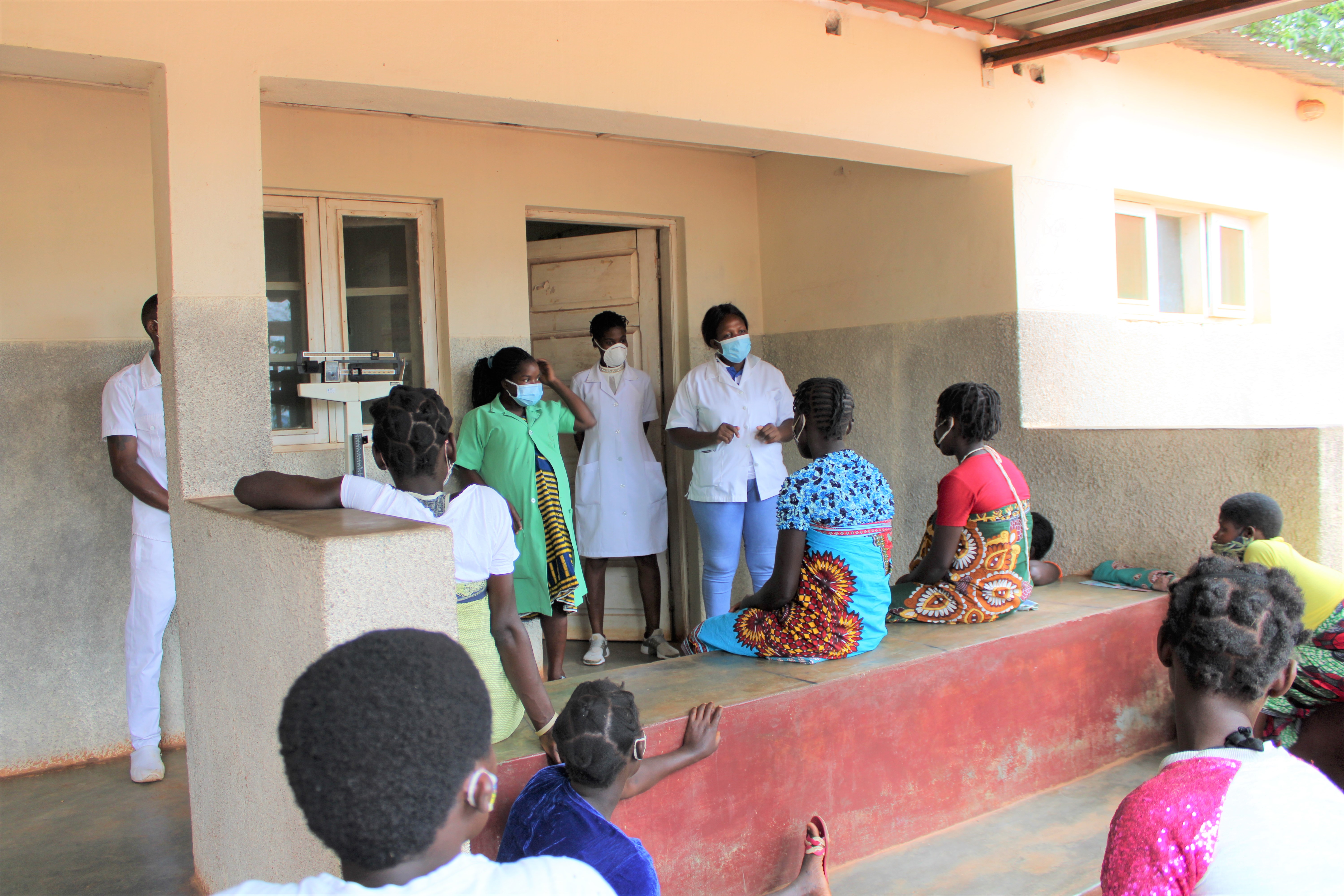
institutional births at the Mocuba Health Center
©Karlina Salu/UNFPA Mozambique
To better address these challenges, the Innovation Team at UNFPA Mozambique created Chopela Mama, a new life-saving ride-hailing platform that connects expectant mothers in remote communities with formal and informal drivers, so they can safely reach obstetric care on time and at no cost.
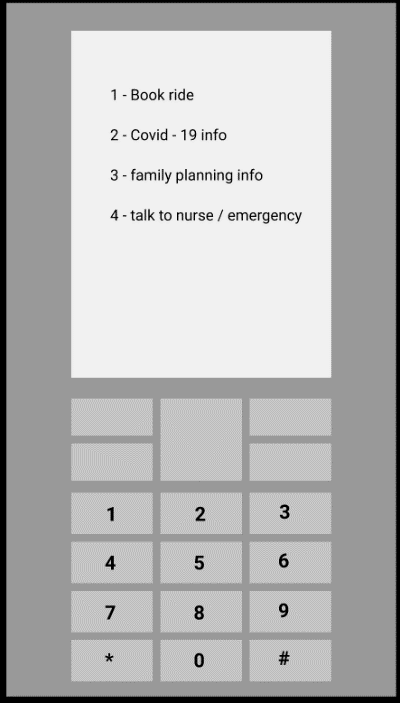
designed Carmelinda Muchanga ©UNFPA Mozambique
Chopela Mama was created as part of the 2020 Global Innovation Pipeline on Maternal Health, co-led by UNFPA and WHO, with a particular focus on quality of care in order to accelerate universal access to sexual and reproductive health and rights. UNFPA Country Offices across the globe submitted bold innovative solutions that uniquely address and unblock key bottlenecks that prevent women and girls from having equitable access to comprehensive and good quality maternal and newborn care.
With the generous support of the WFP and UNFPA Innovation Teams, and in spite of the COVID-19 pandemic, the team further developed the concept of Chopela Mama after extensive storyboarding, virtual user research, and most importantly, the application prototyping. With these ideas in hand, the team identified Zambezia province as a pilot province and embarked on a field mission to work with Provincial and District level maternal and child health nurses, local drivers, and community influencers (TBAs and community health workers - CHWs).
With valuable insights gathered in the field, the team adjusted preconceived assumptions such as the use of android phones in remote areas, availability of vehicles, and access to roads. The project will now focus on a USSD solution (similar to sending simple text messages) which will allow anyone with a simple feature phone to access a ride and a call center to facilitate the communication between expectant mothers, local drivers and the health facilities. While in the field, an extensive mapping exercise took place allowing the team to map over 560 km of access roads which has greatly enhanced the team’s ability to provide an effective solution that matches the reality on the ground.
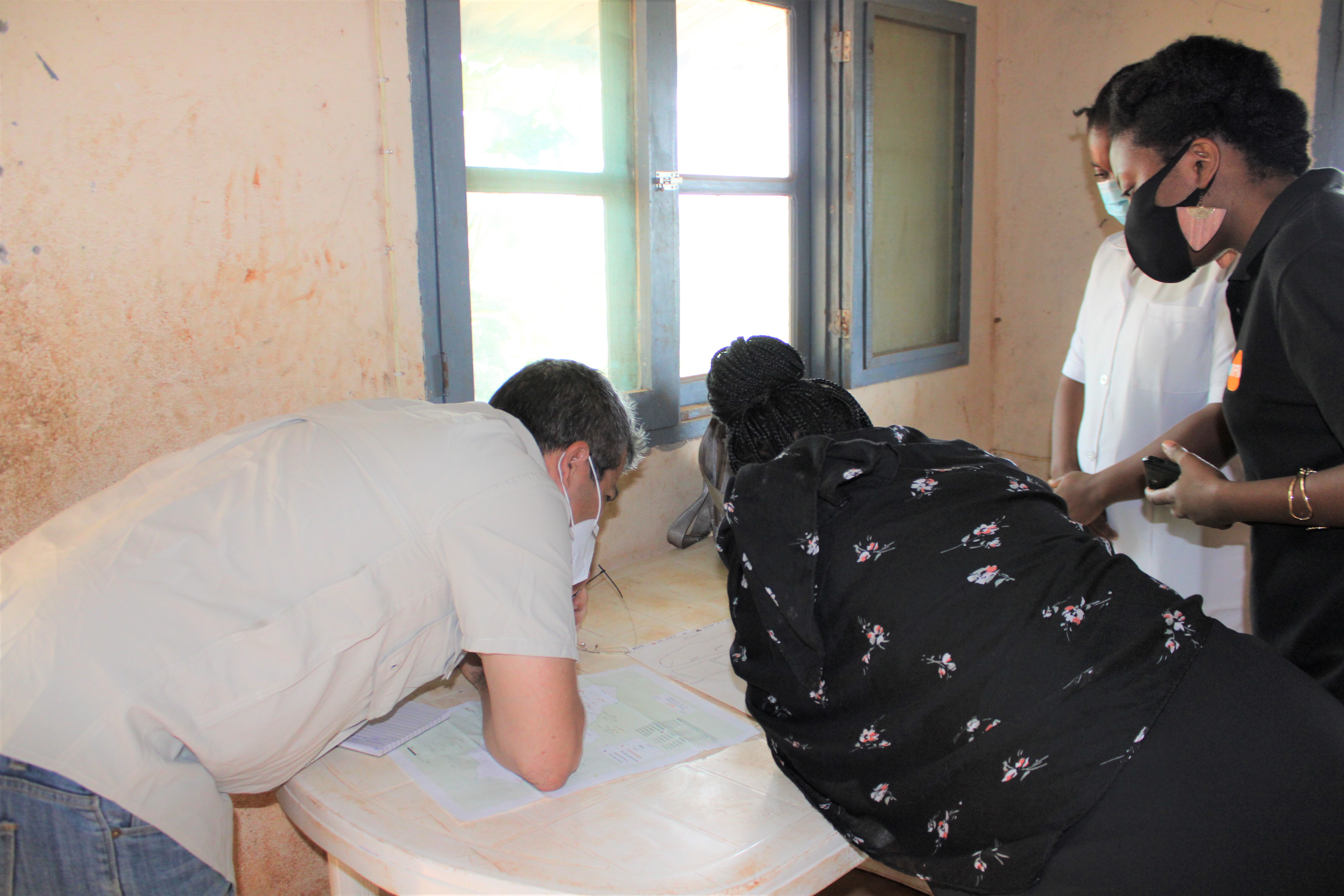
the Provincial Head of Maternal-Child Health, Nurse Maria Rosa
©Karlina Salu/UNFPA Mozambique
With the help of local developers, the team aims to build an exceptional, yet simple tool via basic phones, that has the potential to reach about 400,000 pregnant women in Mozambique every year.
Since the COVID-19 pandemic was first reported in Mozambique last year, UNFPA has supported innovative initiatives to ensure continuity of life-saving health and protection services, including mobile brigades to make contraceptives and family planning more accessible to remote communities, distribution of basic dignity kits containing menstrual hygiene and sanitary items, and supporting the provision of national hot-lines so women and girls can get access to timely information and referral to services.
Benefiting from UNFPA’s role in the national response to COVID-19, the Chopela Mama initiative comes at a perfect time to contribute towards the continuation of sexual and reproductive health services.
Stay tuned for updates on our collaboration with traditional birth attendants like Catarina, who will now be more confident in their ability to get expectant mothers to health facilities on time with the added support from Chopela Mama!
Watch a video about our journey:

